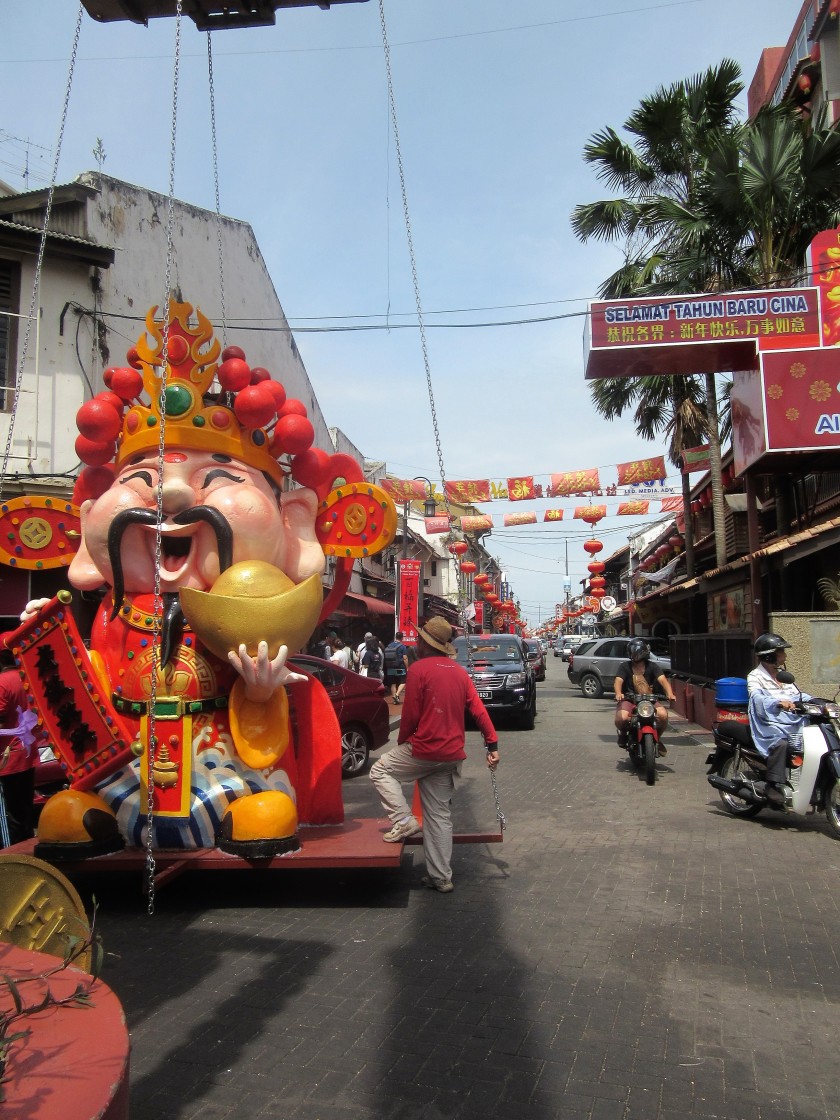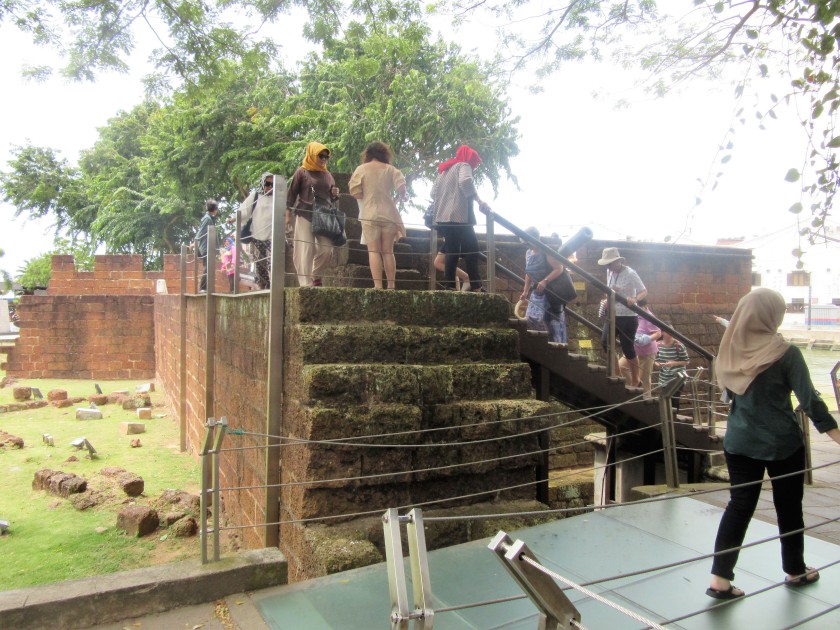January 27, 2019
By the time we reached Malacca towards the end of January, I’d had enough of escorted excursions, enough of seeing temples and churches and remnants of forts built by conquering Europeans. My friend, Felicia, and I decided to hop on one of tenders shuttling the ship’s passengers ashore every hour to wander around the town on our own.
The sun burned hot, so hot it seemed to bore through my flesh right through to my bones. We walked under whatever shade we could find as we ambled through local covered markets, examining foods and spices we didn’t recognize until we stumbled on a super-modern shopping mall. We took respite from the heat for a half hour, strolling along the aisles of trendy shops and buying nothing. For one thing, the clothes are not cut for the bodies of Western women of a certain age with little muffin tops to hide. The average size for Malacca women seems to be two and under.

Eventually, we found our way to the old town and Jonker Street, a lively place full of antique shops and locally made souvenir stores, a place where shopping also entails delightful chats with shopkeepers. Talking to the people you buy from is a much more civilized way to do business than going to a shopping mall where you have to go searching around the stores to find somebody to help you (just like at home).

At an antique shop on Jonker Street I bought a small jade statue of a big, fat laughing Buddha at an antique shop. I’ve become quite attached to him. Felicia bought a T-shirt featuring an eye-popping graphic made by a local artist.
I was quite taken with the bicycle rickshaws, which are decorated with flowers and stuffed animals and blare music as they drive past.

Malacca, founded in the 15th C by the Prince of Palembang, is a state in Malaysia situated in the southern region of the Malay Peninsula next to the Straits of Malacca. At the time of its founding, Malacca’s nearness to the spice islands of Indonesia coupled with fact that the state had adopted Islam soon after its establishment and had extensive links with the Muslim trading world, which made it one of the most ports in Malaysia.
Then along came the Portuguese in the early 16th C. In 1511 after a forty-day siege Malacca fell. About a century later the Dutch decided they wanted it and launched several attacks during the first four decades of the 17th C. The port fell into Dutch hands in 1641.

But wait. The British weren’t to be left out and they got their hands on Malacca in 1824 as part of a treaty with the Dutch and remained under British rule until 1946, except between 1942 to 1945 when the Japanese occupied it during World War II.
Malacca’s capital, also named Malacca, is home to some half a million people.
Next stop: Penang, Malaysia
Hello Elvira, I hope you are enjoying the lectures on-board. I’m taking a U of T continuing education class about Marie Antoinette and the French Revolution. The professor is excellent; during her non-teaching time she does lectures on Europe bound cruise ships about European royal history. This leads me to believe the quality of speakers is high! I hope the ship’s services and amenities continue to delight and meet your every need. So nice to be pampered :-).
LikeLike
Yes, the speakers are excellent, everything from history to archeology to geology and even ornithology. I can’t believe the time has gone by so fast. I’l be home in 4 weeks! I’ll subject you to some pictures, if you’ll allow it. See you soon, Fireda
LikeLike
Oh yes indeed, I would love to see your pictures and chat about your trip when you get back.
LikeLike